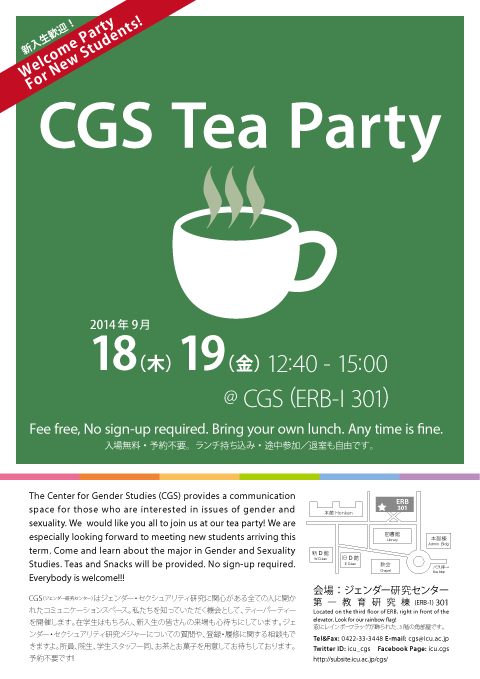[CGS 10th Anniversary Symposium]
Miho MATSUZAKI
Junkenkyuin (Associate Researcher), CGS
Yuko SASAKI
Research Institute Assistant, CGS; Master's Student, Graduate School of Arts and Sciences, The University of Tokyo
[The article below is the same as the article that appears in the seventeenth issue of the CGS Newsletter.]
This session will examine the Japanese university system and international students from the perspective of gender and sexuality, which is an aspect that has hitherto not been sufficiently explored. In particular, we ask, how do the various institutions and norms of gender and sexuality impact international students who are ethnic, linguistic, religious, and/or cultural minorities in Japan? How are the actual bodies of these students marginalized or made invisible in this process?
We have invited guest speakers to share their experiences in coordinating and supporting international students in Japan. The session will begin with a report by CGS Assistant Director Kana Takamatsu on how the Japanese university system handles international students and some of the challenges involved. Next, Kyoko Tanaka of the Education Center for International Students at Nagoya University will discuss the Japanese university system from the perspective of international students who are religious minorities. Then Tomoka Toraiwa of the same center will speak about the types of harassment that international students in Japan tend to be subjected to. Finally, we hope to widen the debate by inviting further discussion among all the participants.
While the asymmetry of local and international students in Japan continues to be spawned, it is also becoming less visible by the day. To address this issue, this session will examine the intrinsic link between gender/sexuality norms and institutions and the study abroad system in Japan, and provide a forum for participants to share their viewpoints on how this impacts the "bodies" who have traveled from other countries to study here. Besides introducing case studies and debating the diverse gender and sexuality issues concerning international students in Japan, we will also question the "absent debate," namely, the fact that these issues have received little attention both in research and in practice.
